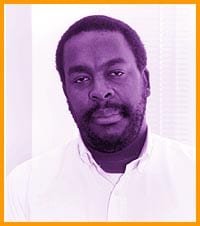The judge in the Daniel Webb police entrapment civil court case refused to allow the introduction of gay expert testimony during the February trial.
Mr Justice Nick Borkovich of the Ontario Superior Court Of Justice ruled that such evidence would not help because his role is limited to “whether there was consent or a lack of consent. And there is nothing in that social practices or social context, etcetera, can assist me in as to whether there was any consent.”
Lawyer Ernest Guiste wanted people on the stand like Dr Gary Kinsman, an expert on police practices and the social implications of policing with respect to the gay community.
Guiste is representing Daniel Webb, an Anglican minister who says his life was destroyed when Kitchener cops charged him in June 1993 with sexual assault during a park clean-up.
Guiste says the sting operation used was unlawful. “The whole objective was to try and bring social or communal scorn and humiliation and hatred through the media.”
Guiste was in court in Kitchener-Waterloo last week attempting to prove that the officer who arrested Webb (a former Toronto morality squad officer once disciplined for drinking on the job) violated Webb’s rights by falsely arresting him and then releasing his name to the media.
But the judge’s refusal to allow expert gay testimony seems to be a blow for Webb’s claim to have been wronged under the Canadian Charter Of Rights And Freedoms. In this claim, Webb argued that the police force was “deliberately setting out to entrap and publicly humiliate an identifiable group, namely homosexual men.”
The judge did allow some of Guiste’s evidence: that the police never intended to follow up on the original arrest and charge.
Guiste says that PC George Gillingham admitted the Crown
attorney wanted to withdraw the charge but was forced to proceed when Gillingham refused to drop the case. Gillingham then said he hadn’t show up for the trial and as a result the charge was thrown out.
Guiste held that the officer knew the charge would not stick and so didn’t attend court. The response was that he was not informed of the trial date.
There was a lot of publicity at the time, however, because police sent Webb’s name to the newspapers (causing the publicity which led to him losing his job).
The lawyers will now trade written submissions for the next couple of months, with the judge’s ruling expected in early June. Guiste says there is already enough to appeal the case should it not go his client’s way.
Webb is suing for nearly $4-million in punitive damages.
Says Guiste: “If you allow the state to be involved in doing clandestine operations involving sex where they are posing as individuals who are consenting to sex, you can do a lot of harm to people.”

 Why you can trust Xtra
Why you can trust Xtra


